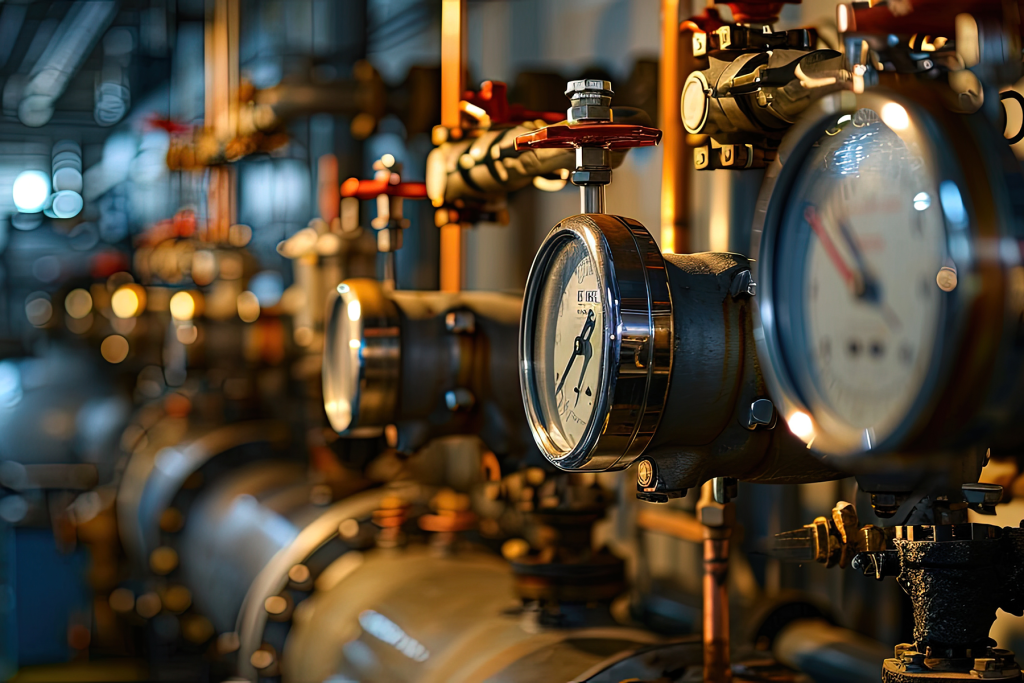A well-maintained and properly controlled HVAC water system is essential for ensuring energy efficiency, reducing downtime, and extending the lifespan of critical equipment. Without proper water treatment and system management, issues like scale buildup, corrosion, and biological growth can reduce system performance and lead to costly repairs. Below, we explore the key performance benefits of a properly controlled HVAC water system.
1. Increased Energy Efficiency
A clean and well-balanced HVAC water system operates at peak efficiency, translating to significant energy savings.
- Reduced Scaling and Fouling – Scale deposits on heat exchange surfaces act as an insulator, reducing heat transfer efficiency and increasing energy consumption. Proper water treatment prevents scale formation and keeps heat exchangers running efficiently.
- Optimized Pump and Chiller Performance – Clean system water reduces strain on pumps and chillers, leading to lower power consumption and improved cooling efficiency.
- Stable System Chemistry – Properly maintained pH, conductivity, and inhibitor levels ensure the system operates within optimal parameters, reducing unnecessary energy use.
2. Reduced Downtime and Maintenance Costs
Unexpected breakdowns in an HVAC system can lead to costly repairs, lost productivity, and uncomfortable building conditions. A well-maintained water system minimizes these risks by:
- Preventing Corrosion – Corrosion inhibitors protect metal components from degradation, reducing the risk of leaks and failures.
- Minimizing Microbial Contamination – Proper biocide application prevents biological fouling and biofilm formation, which can lead to blockages and inefficiencies.
- Proactive Maintenance and Monitoring – Routine testing and monitoring help identify potential issues before they become major problems, reducing emergency maintenance costs and unplanned downtime.
3. Extended Equipment Longevity
The longevity of HVAC system components, including chillers, boilers, heat exchangers, and piping, is directly impacted by water quality and treatment.
- Reduced Wear and Tear – Properly balanced water chemistry prevents premature wear on system components, leading to longer operational life.
- Optimized Heat Exchanger Performance – Clean heat exchangers ensure maximum heat transfer efficiency, reducing mechanical strain on the system.
- Lower Replacement Costs – By preventing corrosion, scaling, and biological growth, HVAC system components can operate effectively for their full expected lifespan, delaying costly replacements.
4. Improved System Reliability and Performance
A properly managed HVAC water system ensures consistent, reliable performance, which is critical for maintaining comfort and operational efficiency.
- Stable Temperature Control – Balanced water chemistry ensures consistent cooling and heating performance, improving indoor comfort.
- Reduced Risk of System Failures – Proper chemical treatment and filtration reduce the chances of catastrophic failures due to clogged piping or compromised components.
- Enhanced Operational Predictability – A well-maintained system operates smoothly, reducing unexpected fluctuations in performance.
5. Environmental and Sustainability Benefits
A well-controlled HVAC water system contributes to sustainability initiatives by reducing energy and water waste.
- Lower Water Consumption – Properly treated water reduces blowdown frequency, conserving water and reducing operational costs.
- Energy Savings – Efficient heat transfer minimizes energy consumption, reducing the facility’s carbon footprint.
- Compliance with Regulations – Maintaining optimal water quality ensures compliance with environmental and safety regulations related to water treatment.
Conclusion: The Value of Proactive HVAC Water System Management
A properly controlled HVAC water system provides substantial benefits, including increased energy efficiency, reduced downtime, extended equipment longevity, and improved overall reliability. By implementing proactive water treatment strategies, regular monitoring, and preventative maintenance, facility managers can maximize system performance while reducing operational costs. Investing in a well-maintained water treatment program is not just about protecting equipment—it’s about optimizing the entire HVAC system for long-term success. For tailored solutions and expert guidance, consulting with a professional water treatment specialist is highly recommended.

